Science Scoop
Science Matters Sand Matters
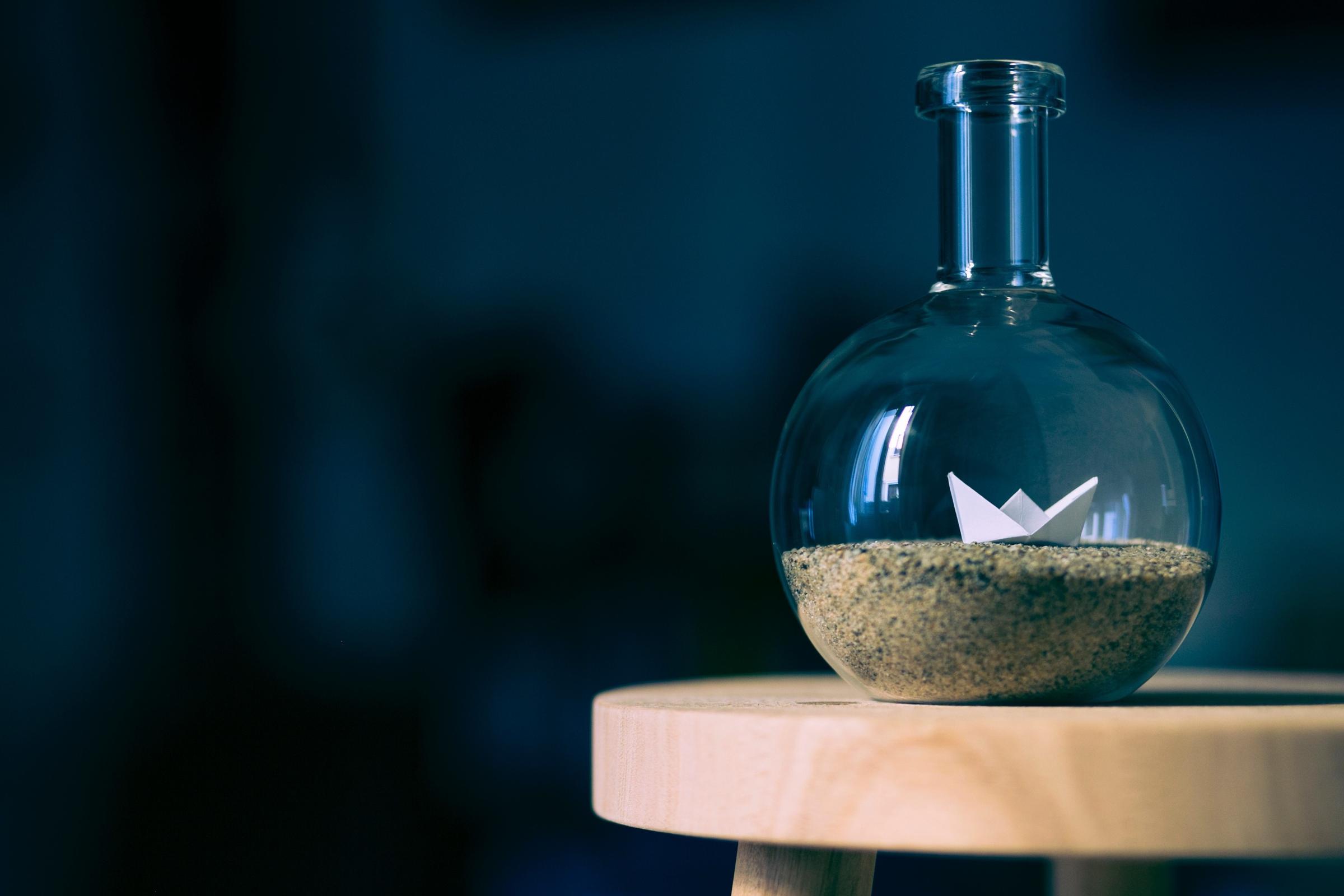
Science Scoop
Science Matters Sand Matters
On Thursday 2nd September Science students in the Year 8 SEAL class had the privilege of viewing geological specimens from the impressive collection of one of our class parents, Peta McDonald (Abbey in 8E).


Working remotely, Peta showed the class samples of sand collected from around the world. She used her impressive microscopy skills to share specimens, giving students the opportunity to compare properties of different types of sand and draw conclusions about the environments from which they came.
This aligned brilliantly with the Rocks topic the class are currently studying.
The microscope images were both fascinating and beautiful, and students enjoyed asking and answering questions about their sources and characteristics.
We were very grateful to have Peta act as a special guest, sharing her fascinating hobby, her beautiful specimens, and her impressive knowledge.
Ms Angela Reid
Science Learning Group Leader
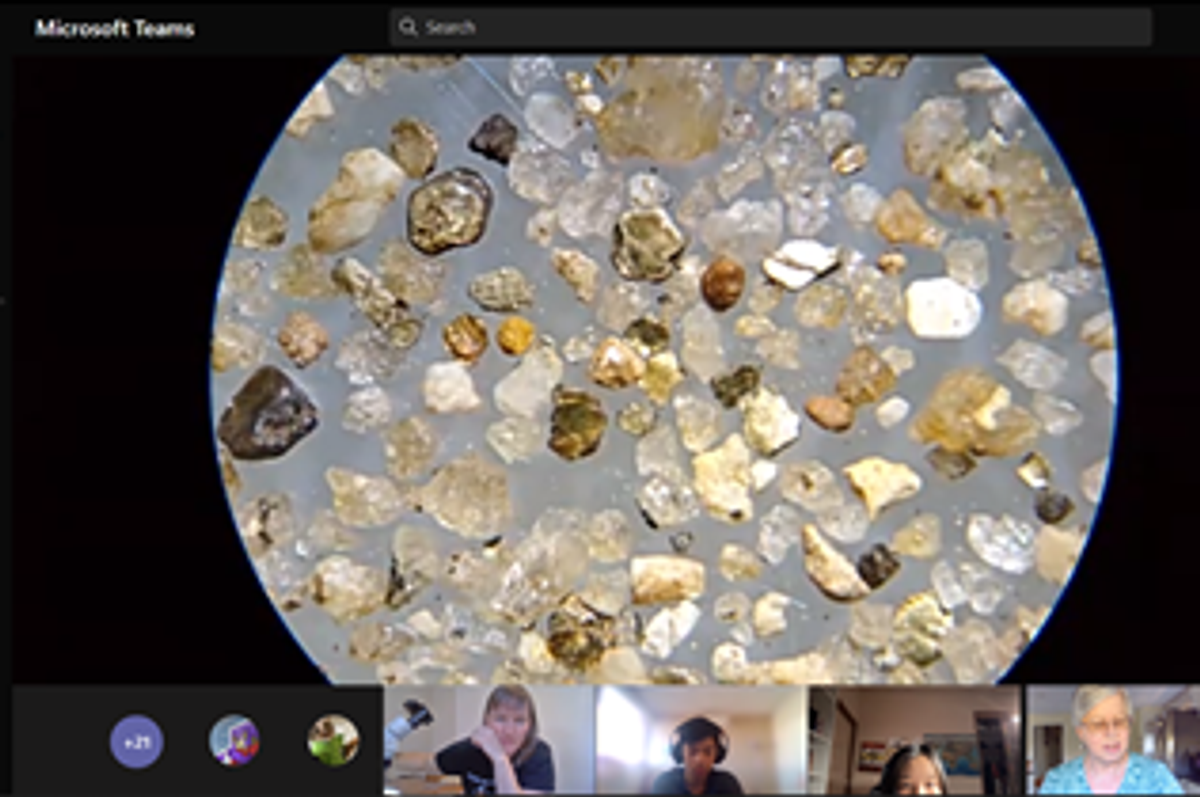

Echuca sand
Grains in river sand are jagged and pointy


New Zealand river sand
Contains basalt from volcanic eruptions


Beach sand
Merimbula very smooth and rounded grains, weathered by wave action
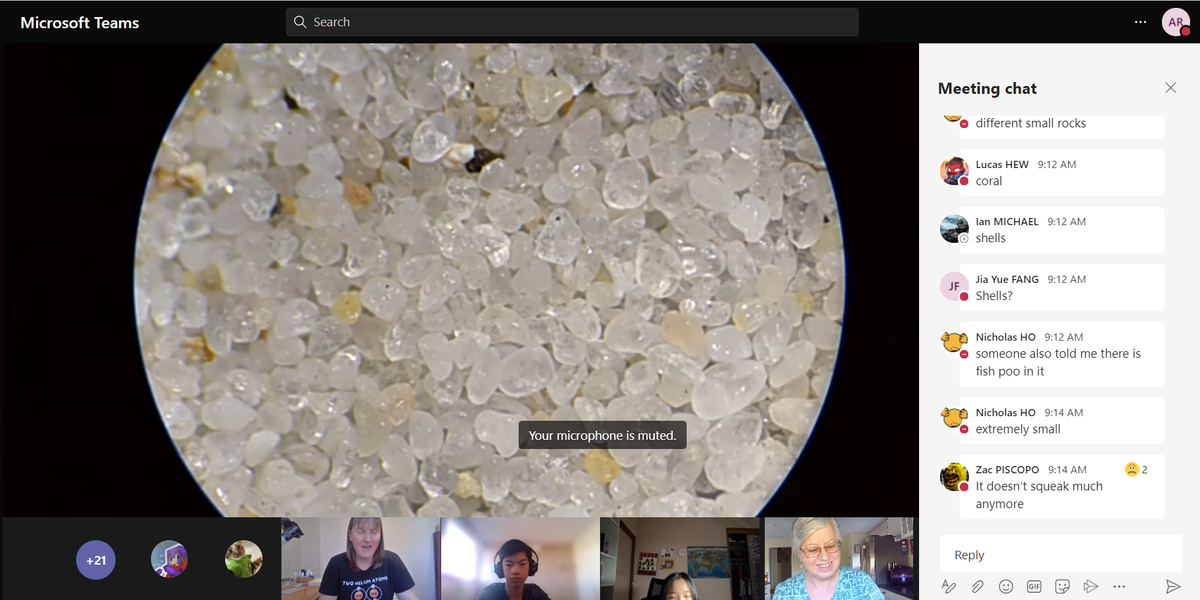

Squeaky beach sand
Lots of silica


Red desert sand
Central Australia
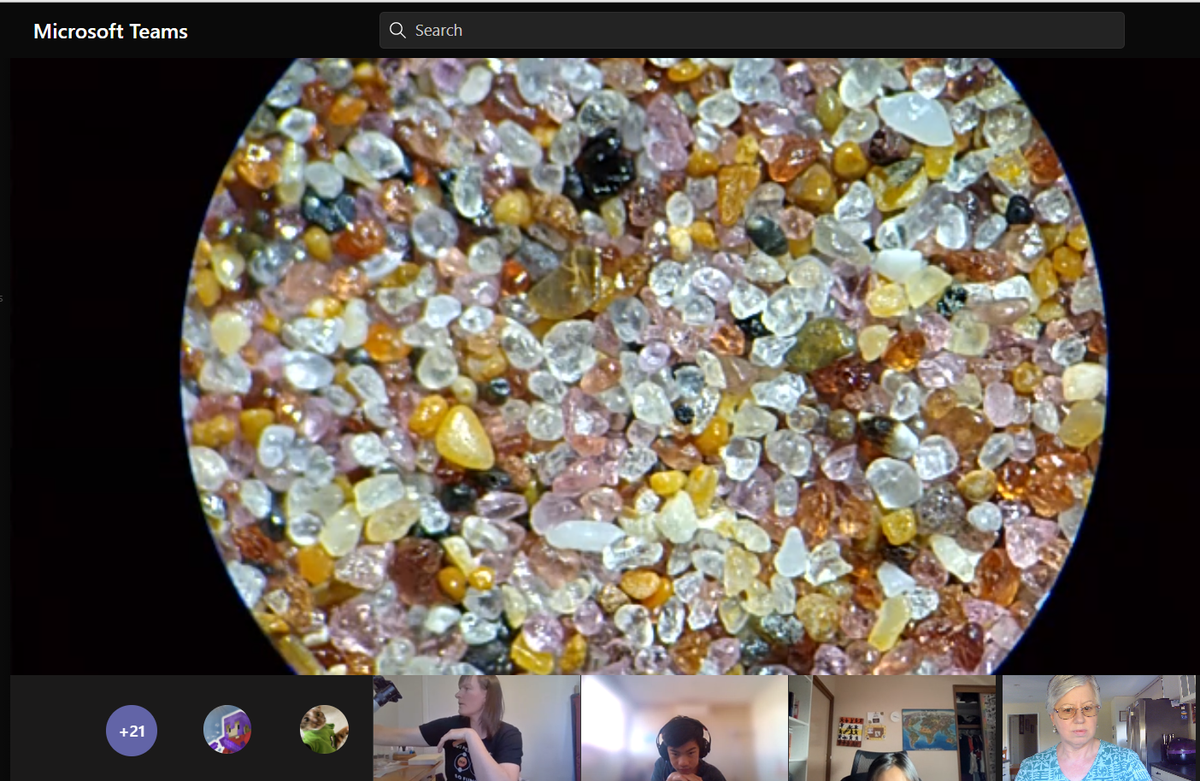

Purple sand
Contains rose quartz. Students said it was like a lot of tiny gems
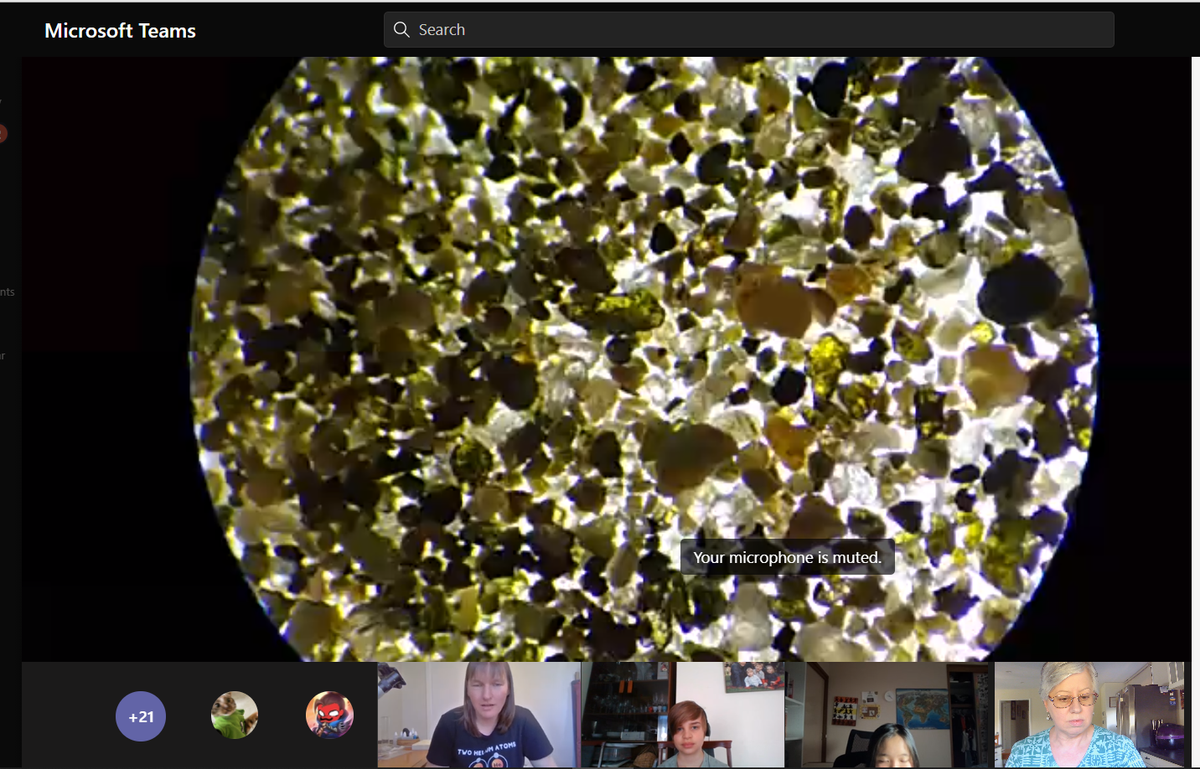

Sand containing volcanic olivine
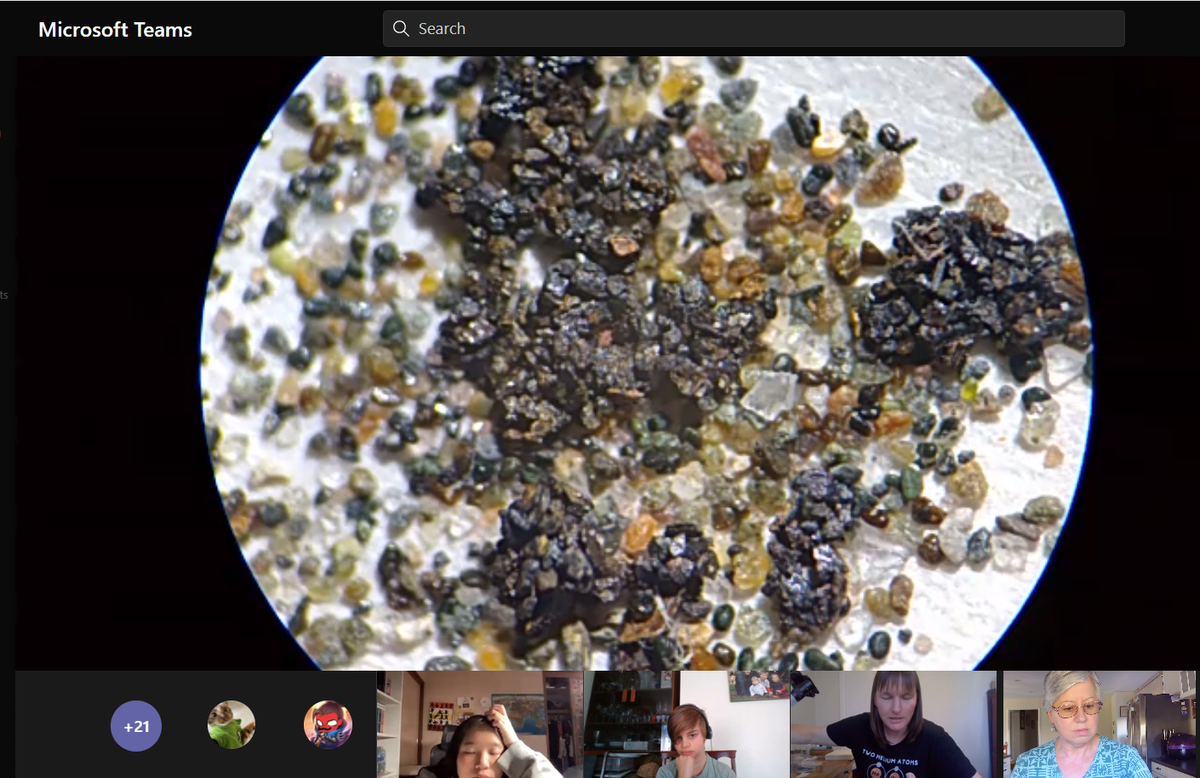

Beach sand
From Normandy in France (beach that was stormed on D-Day). Sand is iron rich from military debris and shrapnel; has weathered so that the sand is 4% iron.
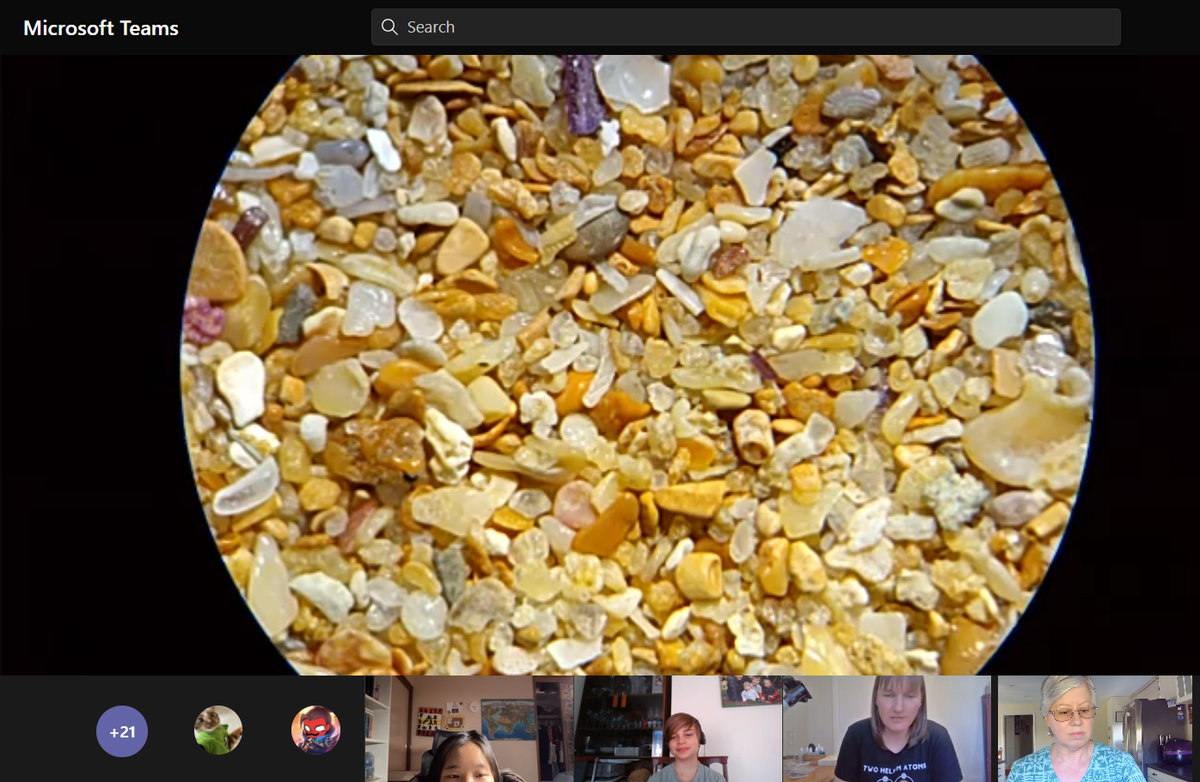

Whale beach Sydney
Fossiliferous / rich in fossils
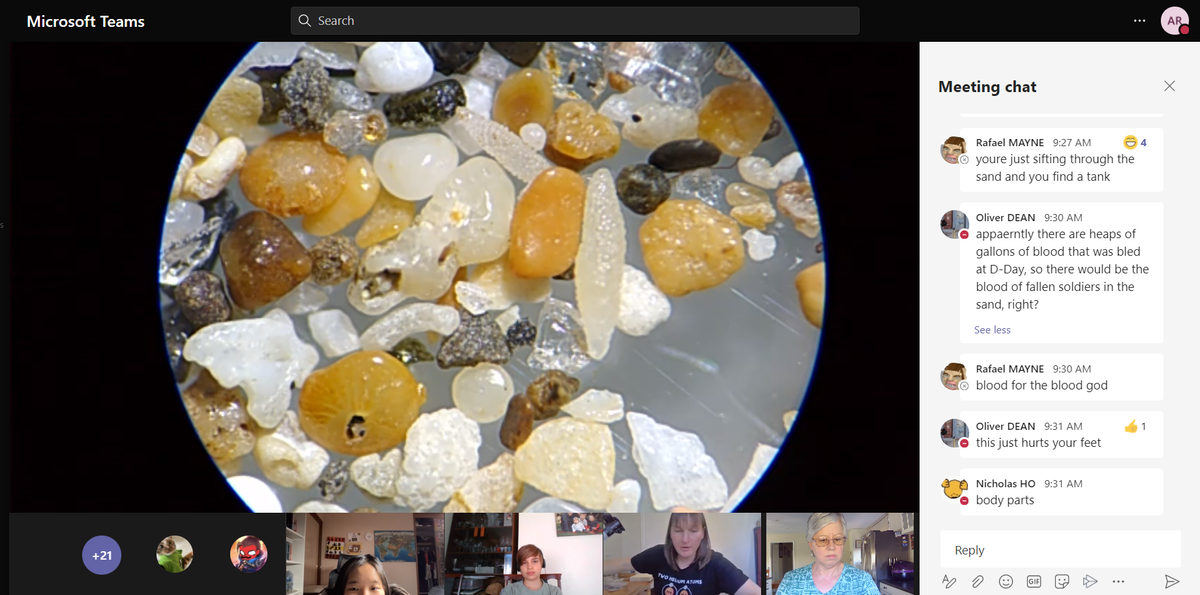

Bali sand
Fossiliferous; contains exquisite Protists


Rottnest Island sand
White coral sand contains shells, sea urchin spines, coral, protists